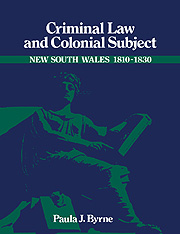Summary
Convict Labour in Sydney
Bigge: How long does it take to make a London thief into a good farming man?
Hutchinson: Two or three years.
Bigge speaks here of transformation and this is the language of reform clearly understood by an administrator of convicts, William Hutchinson. The convict was raw material. Such language was to make an increasing appearance in the critiques of the colony of New South Wales. And it is this language which was later to influence the historiography of early colonial New South Wales. The issue of what convicts ‘became’ and the nature of the ‘raw material’ are major directions of research. Alongside the language of reform was the language of commerce. This has not been fully explored by historians, except in Shaw's recognition in Convicts and the Colonies of the constant tension between the notion that the convict system should pay for itself and the notion that the convict should be reformed.
The language of commerce, then, is open to further exploration. It implicitly considered the encapsulation of the person of the convict–it asked the question, what was the person of the convict? Legislators and administrators were led into the difficult world of political economy. This was not undertaken in order to consider the rights of the convict; rather it was for administrators to measure, to weigh, to quantify labour, which they struggled to see as separate from the convict.
- Type
- Chapter
- Information
- Criminal Law and Colonial Subject , pp. 19 - 72Publisher: Cambridge University PressPrint publication year: 1993
- 1
- Cited by



